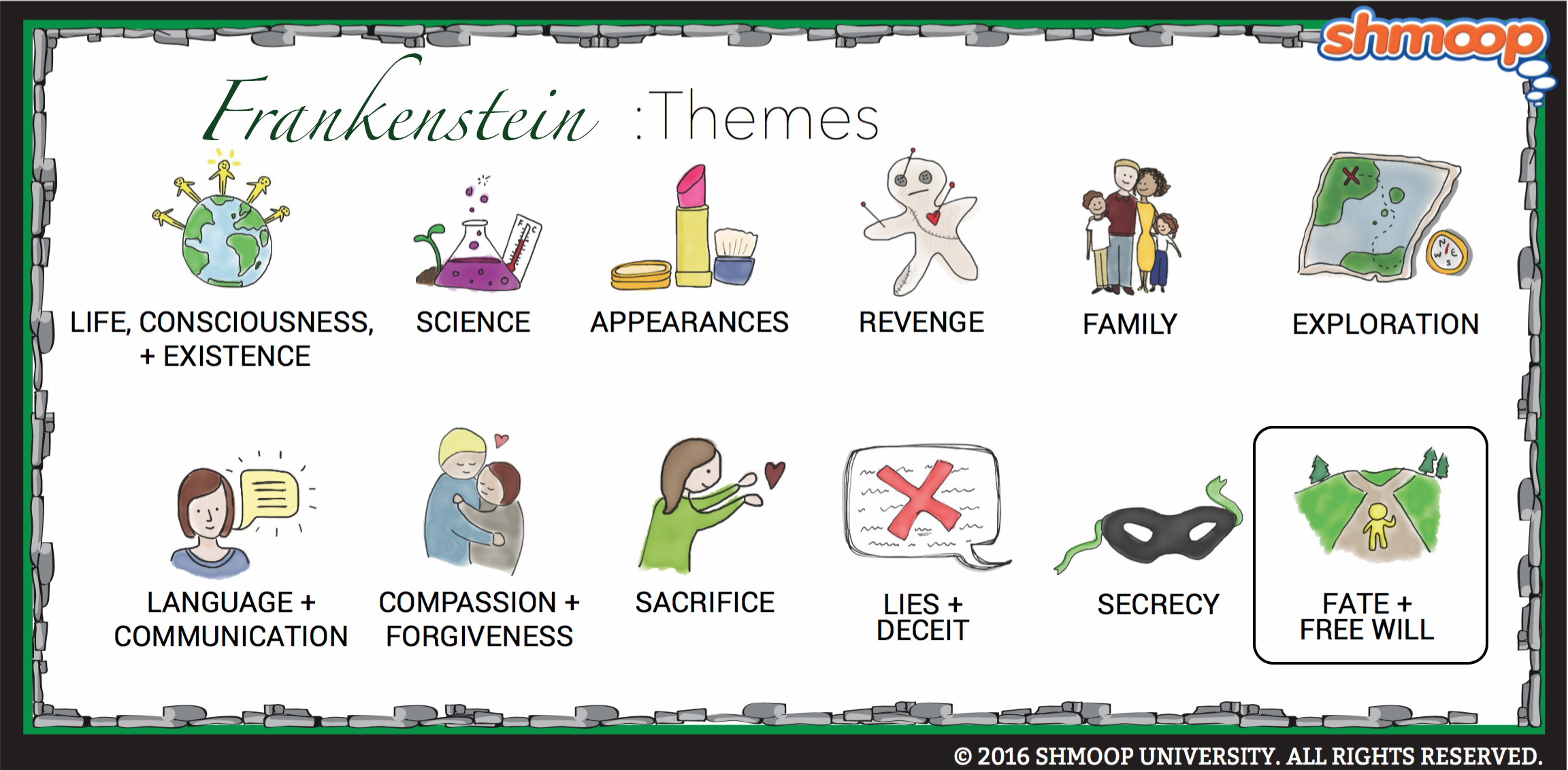 (Click the themes infographic to download.)
(Click the themes infographic to download.)
We can't exactly see Victor singing "Born This Way" (but we like to imagine it). At the same time, that's basically his anthem: over and over, he tells us that he just couldn't help it. It was destiny. It was fate. He was meant to discover the secret of life. Great! So, Frankenstein definitely agrees that we're born to certain paths; we're controlled by our genes (or whatever they thought of as genes in the early nineteenth century), and we just can't help it.
Not so fast. First, Mary's revisions to the 1831 edition made fate way more important than it was in the original 1818 edition (source). Second, there's the whole issue of the monster, who seems to make some pretty clear choices about his behavior. Sure, he blames his looks and his dad and, well, everyone he encounters. But does that mean he didn't have a choice?
Questions About Fate and Free Will
- So, truth: does Frankenstein believe in free will? Or does it believe in fate? And what kind of fate does it seem to believe in—God? Destiny? Karma? Cause-and-effect? Genes? Upbringing?
- Is the monster evil because of his family (or lack thereof), or is he evil because he's assembled from a collection of corpse parts?
- The early nineteenth century may not have known about DNA, but it placed a lot of emphasis on "breeding," like who your parents were (and their parents, and their parents). Is that just another word for "nurture" in the timeless "nature vs. nurture" debate, or is the emphasis on parentage more like our understanding of genetics?
Chew on This
In Frankenstein, people are masters of their own destinies. Victor only blames fate because he's looking for an excuse.
No one in Frankenstein can be held responsible for his actions, because fate is stronger than free will.